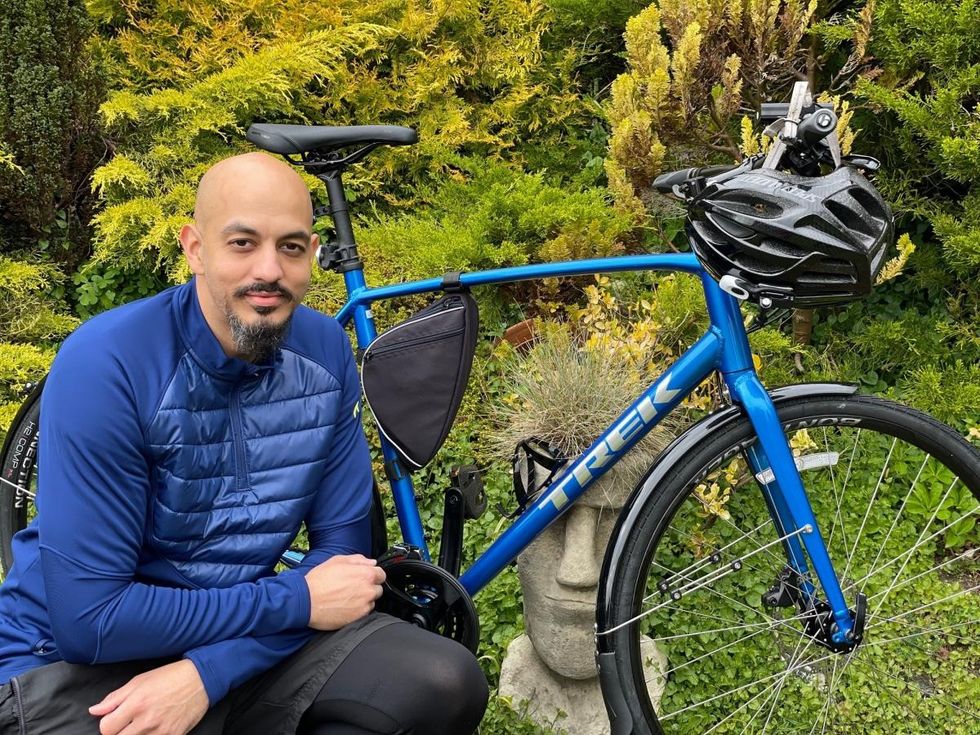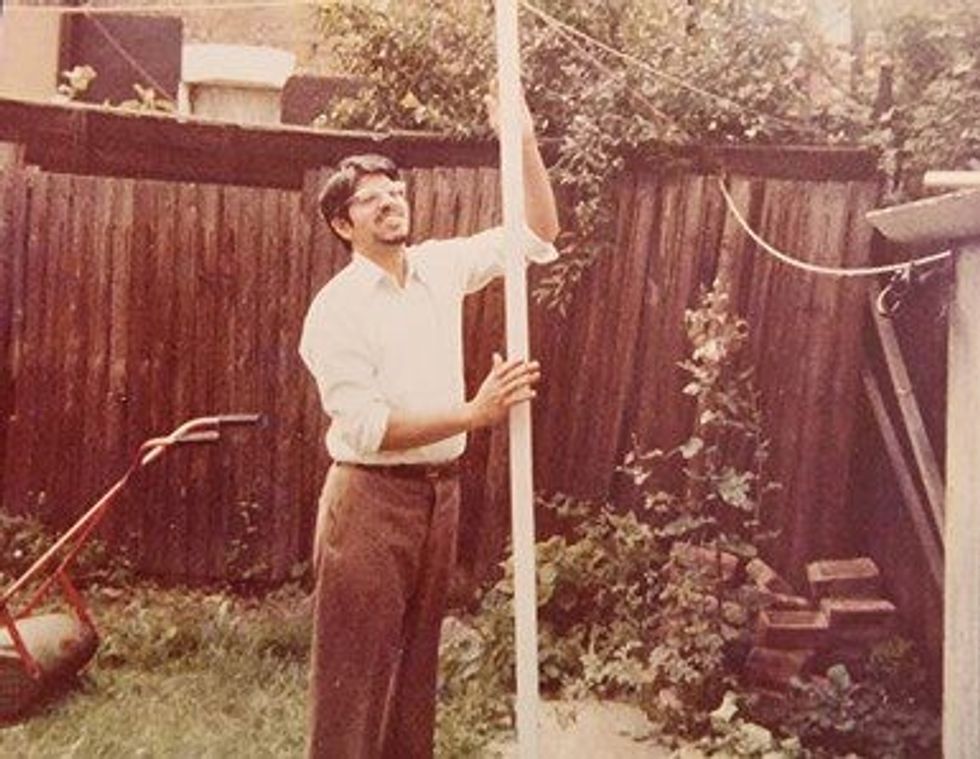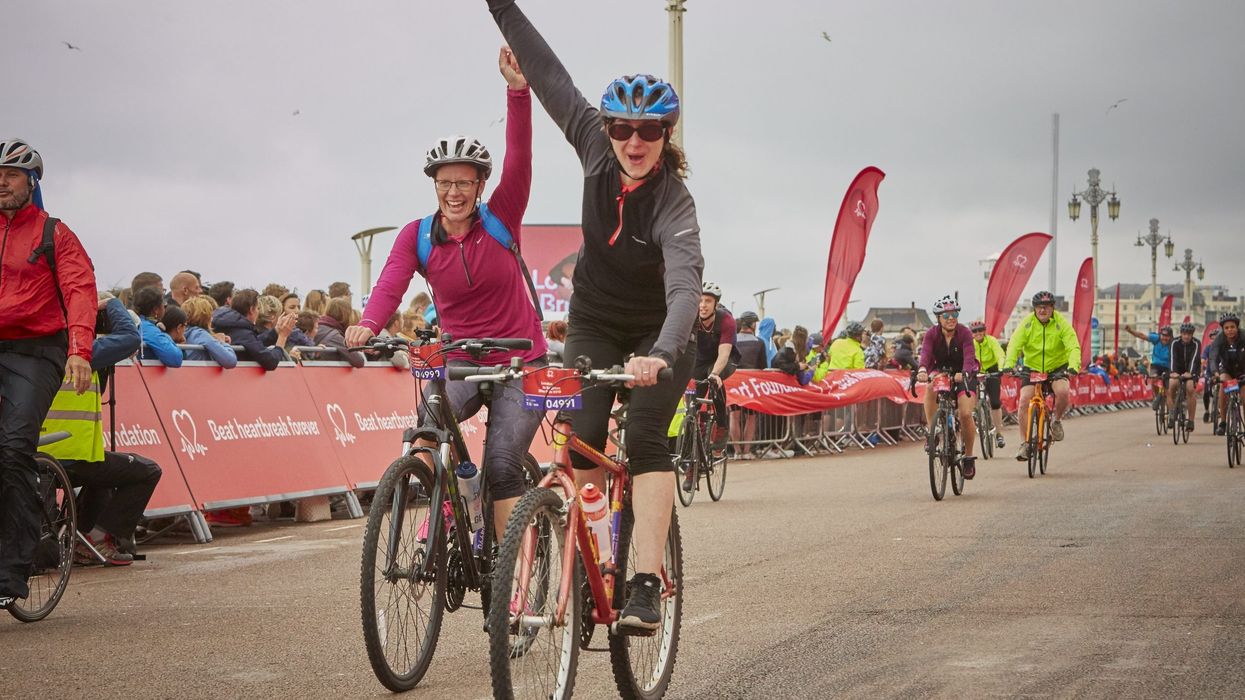A London resident is saddling up for British Heart Foundation’s London to Brighton Bike Ride to help raise money for people with heart and circulatory diseases, just like him.
Deepak Kapoor, 42, from Coulsdon, will be taking on the iconic 54-mile ride from Clapham Common to Brighton seafront on Sunday 19th June.
In 2012, Deepak suffered a heart attack. Aged just 32 years old Deepak was on his way home from work when he began to experience a tightening sensation in his chest. As he has a history of heart disease in the family Deepak wasted no time and went straight to hospital where he underwent an emergency stent procedure.
Over the past ten years Deepak has overcome many challenges on his road to recovery, both physically and mentally. He took up cycling in a bid to help him get fit and increase his own cardiovascular endurance.

Deepak now wants to put his pedal power to the test by taking on the famous London to Brighton Bike Ride and support the BHF’s ambition of raising more than £2.8 million at the event for research into heart and circulatory diseases.
He said: “Taking part in a cycling event was a fitness goal I wanted to work towards. Since signing up for the London to Brighton Bike Ride last year I’ve been working hard to increase my cardiovascular endurance on a bike.
“I’ve really been enjoying getting into cycling but know the 54-mile ride will be a challenge, and certainly put me out of my comfort zone. I know that I’m resilient and, with all the training I’ve been doing, I’ll be able to tackle anything. I’m looking forward to being able to say I’ve conquered the Ditchling Beacon.”

Deepak’s own heart condition is not the only reason why he is taking on the London to Brighton Bike Ride. When he was just four years old his dad, Chander Kapoor, died just two days before his 36th birthday in 1984, after suffering a major heart attacked caused by a blocked aorta and significant damage to his heart muscle. Deepak will be riding the event on Father’s Day in memory of his dad, as well as other family members, including his grandfather, who have died from heart related conditions.
Sadly, he isn’t alone. In London, around 130,000 people are currently living with heart and circulatory diseases, which kill more than 1 in 4 in the Capital alone.
Deepak is now passionate about supporting others by raising money for life-saving research funded by the British Heart Foundation.
Deepak said: “The support I receive from my family and friends is overwhelming. I cannot thank them enough for all the love they’ve given to me over the last ten years through my own battle with heart disease.
“Losing a parent is always tough but losing one at such a young age is truly heart-breaking. My father was a great man, who always tried to stay healthy and active.
“Heart disease has impacted my family for generations, like so many others. I want to help make a difference to save lives and support the incredible work that goes into making research breakthroughs at the British Heart Foundation.”
The London to Brighton Bike Ride is returning on Sunday 19 June after a two-year break due to the Covid-19 pandemic. Deepak will join around 14,000 other cyclists of all abilities on the 54-mile ride from city to coast.
Lee Sumner, London to Brighton Event Manager, said: “Deepak has been affected by the consequences of heart and circulatory diseases his whole life but it’s so inspiring to hear how passionate he is about making a difference by taking on the London to Brighton Bike Ride.
“I wish Deepak the very best of luck on event day, along with the other 14,000 riders taking part in the London to Brighton Bike Ride. It’s thanks to people like him that the British Heart Foundation can continue to fund science projects that will help to save and improve lives of people with heart and circulatory conditions.”




